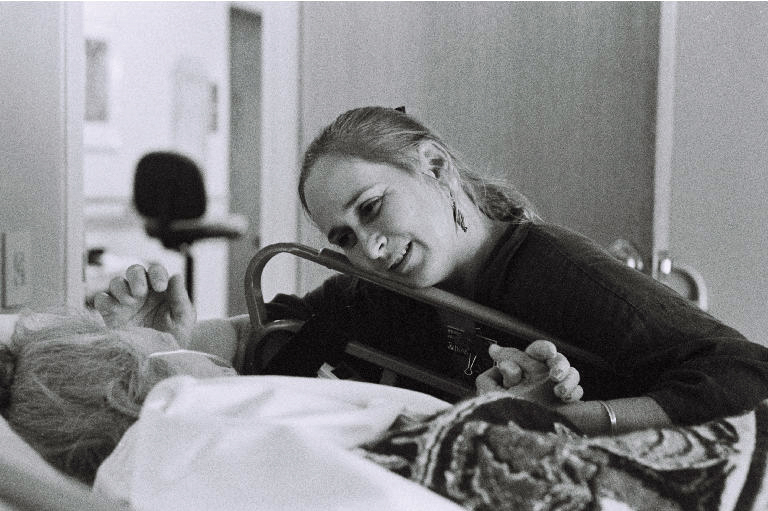Supporting a family member, friend, or client with a serious illness can be a daunting, painful, brutal, unrewarding task for anyone. It can also be one of the most connective, loving, engaging, and life-changing opportunities a person can experience. The difference often lies in the eyes and experience of the beholder. In other words, we each shape the way we respond to illness and how we deal with it.
We know that experience in relationship with our own illness, the loss of others due to illness, or simply our experience with the person in front of us can bring up pain and anguish. We also know that if we can see what is in front of us as a new experience, we have the potential to learn and grow in ways we may never have imagined. What we have in front of us is new if we choose to see it and treat it that way. And for many, this is not an easy task.
In order to be fully present with a person facing a serious illness, some of us will need support from outside sources. Therapy, meditation, exercise, a friend’s ear, prayer, and a long walk in nature may all help us put the past in the past, and stay present in what’s happening now. Some of us will benefit from simply focusing on the tasks of caregiving if the relationship issues run too deep for immediate healing. Some of us will need a companion to share the visits and the work, so we have someone to decompress with, who has witnessed the same moments and conversations. Some of us will need to intersperse our visits with joyful distractions to build strength for the next moments we share with the person who is seriously ill. And some of us will have to remember that, as a survivor, we have time to heal, and the time with this ill person is to simply be present along their journey through illness until it ends.
For staff and family or friend caregivers alike, support for us may be as simple as pausing outside the person’s room before entering, to be aware of what we might be carrying in our mind, body, and soul as we are about to enter. We take a moment to notice our physical strength, our current thoughts, our history with this person, and our distractions that we have just left behind. We can forgive our shortcomings and exhaustion, we can focus on the tasks and the relationship at hand, and we can take a breath to fill up – and clear out – whatever we need to move forward. When we leave the room, we can take another moment to clear out, to identify the good we had while together, whether it was simply to wash a face, do laundry, freshen up the room, or provide intimate care and conversation. We can take a deep breath and focus on what’s next in our lives, and be thankful for the lives we have, and the strength we must find to do whatever we can, and be whomever we can be, in the face of serious illness.
Mostly, we need to remember to focus on the present, bit by bit, visit by visit, and day by day. If we find support for ourselves away from the person with illness, support ourselves entering and exiting the room, and remember to focus on the here and now instead of the past or future, we have a great opportunity to offer support, healing, compassion, and strength to the one who is living – or dying – with their serious illness. What a gift that would be for all of us!

Rabbi Lev Baesh
RN, JD





